The Search for Meaning and the Hamas Massacres in Israel of October 7th
- Ronnie Dunetz
- Feb 19, 2024
- 11 min read
Updated: Feb 22, 2024
Like most Israelis, my life changed dramatically on the morning of October 7, 2023, when Israel was awoken by the most treacherous attack of terror in its history, killing over 1200 Israelis and foreign workers, more than half civilians. While only some of us were directly impacted by the attacks, indirectly we were all feeling that something major had shifted in our lives: a deep sense of insecurity, disbelief and traumatic-memories passed swept across the country. For me, as the child of a Holocaust survivor who had lost his family and his world in 1942, my first reaction was to remember that we Jews have sworn that “never again” would we be led to the slaughter. It prompted me to compile a video clip entitled “Carrying our Parents’ Legacy” to send to whomever I knew in the world. Nonetheless, I was feeling a sense of frustration at not being able to help the hundreds of survivors and their families deal with the unspeakable horrors that had afflicted them.
Dr. Viktor Frankl, Holocuast survivor and the founder of Logotherapy
It was then that I thought of Viktor Frankl, whose book “Man’s Search for Meaning”, the field of logotherapy he founded (“healing through meaning”), and his words about surviving the concentration camps of the Holocaust suddenly became more relevant and potent than ever. Frankl said: “Everything can be taken from a man but one thing: the last of the human freedoms, to choose one's attitude in any given set of circumstances. To choose one's own way". As a practitioner and student of logotherapy associated with the Viktor Frankl Institute of Logotherapy in Israel, I realized in due time that my calling would be to reach out to those who had survived or were directly impacted by the events of October 7 and share with them what I call “A Conversation on Meaning”. Not therapy for their trauma, not practical solutions for their living situation, not any of these very essential modes of support, but a conversation from a listening heart in which together we ask questions about where the meaning is for them today, after all they went through. I knew then in theory, what I know now in practice, that when the “earthquake” of tragedy and trauma hit, there will come a time, for some immediately and for others much later, that one needs to find the narrative of meaning to go on. Frankl taught that meaning is discovered by the individual, in a very unique way and in a very specific moment. I hoped that my “Conversations on Meaning” would invite them into a place within themselves in which reflection would allow for meaning to come forth, as finding meaning is a cornerstone of developing resilience, hope and coping with life's crises.
While this is still work in progress, I would like to share with you some excerpts of the words of a few of these courageous individuals who offered me their trust, opened their hearts and shared with me their pain. The names are not their real names, except for two individuals who gave me permission to quote them.
Searching for Meaning
Amir and Shira were a couple who survived the massive terrorist attack at the Nova Festival, part of the worst terrorist attack in Israel’s history, where over 360 people were murdered while several thousand others fled for their lives in all possible directions and ways. Amir found the pain of his experience to be part of his own spiritual search for “Who am I?”. Despite all the fear that he had to deal with he was able to sense the value of life, and actually used some of the time they were hiding in the bushes to embrace his beloved partner, allowing the deep fear to manifest itself in deep love . Shira, on the other hand, used our conversation as a way to share her feeling of survivor’s guilt but also to express the surprise she had that she was able to “befriend her fear” in a way that she could never believe doing so earlier in her life (she shared that she had been sexually assaulted as a teenager). Her being with Amir helped her survive these grueling hours and experience a feeling of love that she could never have imagined. Following our session, she decided to go see a psychotherapist to further explore that part of her life.
Nova participants flee Hamas gunfire and onslaught
Anna was wounded by Hamas fire at the Nova Festival and she remembers spending hours lying in a ditch below the road and “playing dead” with her husband near her, so that she could stay alive. At one point a Hamas terrorist even stepped on her arm in walking, not noticing that she was not a corpse but alive and breathing. The fact that she was still high from psychedelic materials she ingested during the night helped her endure the terror, in her view. Anna has not been able as yet to resume her previous life and career but took away a sense of meaning that she must also “take care of me in life”. The horrific events brought her into sensing that life is so utterly unpredictable and that if she would not take responsibility for herself, then who will?
Nir and Jill hid in the bushes from the Hamas terrorists as they were massacring hundreds and burning cars all around them at the festival. He was amazed that despite the horror he felt at all times he was in the end able to save 15 others from Hamas bullets. Nir admits that his “soul is wounded” but that he feels that there is meaning in this experience, as terrible as it was. For years he thought of himself as an under-confident man, struggling with life. After Nova he feels he has much to tell, there is a “sense of love to share with others”, which he is doing in lectures that he gives. There is a sense of post-traumatic growth that accompanies his post-traumatic stress symptoms.
Jill, on the other hand, stressed the meaning that she felt in quite a different way. It just so happens that Jill’s brother and his wife were also at the Nova Festival but not with Nir and Jill. When the shooting began she found herself functioning well under the tension…but what about her brother and sister-in law? Even as they were focused on their own survival, Jill never stopped messaging her brother…until there was no answer. Jill attempted to make contact with them to no avail. For hours after that, even after being saved and taken to a nearby village, Jill never ceased to feel the meaning of responsibility to find out about her brother for the sake of their parents. This call for dealing with the situation of communicating with the parents, supporting them and moving to honor her brother and sister-in law has endowed her life with meaning, tragic as it is.
There are two remarkable women with whom I have had the honor to meet with that I wish to describe in further depth, for the way I see the search for meaning has manifested powerfully in their lives.
Orin Gantz the mother of Eden Zecharya
Orin Gantz
On December 18, 2023, Orin Gantz was supposed to celebrate her daughter Eden’s 29th birthday. Instead, she wept and said her final goodbyes to at her funeral, 3 days after Eden’s body was found in Gaza. Eden had been shot while escaping from the Nova festival and abducted by Hamas. For over two months Orin fought endlessly the world over to demand the return of Eden and the scores of Israeli hostages in Gaza. It became the sole focus of her life, the deep meaning which drove her forward 24 hours a day. And in one tragic moment that meaning began to transform itself into another level she never could have imagined. Orin wrote: “Eden and I were very close, we would have long conversations about life, spirituality, we would laugh together, and send each other “Good Morning” text messages with hearts…I will miss her greatly.”
Eden Zecharya, daughter of Orin Gantz, abducted and killed in Gaza
Eden Zecharya, had a deep love for dogs
Orin and Eden
When I met Orin she told me that her own struggles in life had been no picnic: “I had experienced traumas in my childhood, when I grew up I struggled with eating disorders. I never really acknowledged my own strengths and abilities...over 13 years ago I discovered a 12-step program which taught me all about my limiting behavior that we call “addictions” in the program. From that day on I have been on a path of self-empowerment which has revolutionized and empowered my life. Who could have foreseen what lay ahead in my life! I would never have been able to deal with all the horror and pain of the past few months and the death of Eden had I not have had these years of self- development.”
Orin continues: ”The wisdom of the Serenity Prayer that is well-known is exactly what I have experienced. I mustered every possible thing I could do to bring Eden back alive from Gaza…but when I learned that she had been murdered I needed to learn to accept reality, and now I need to bring that wisdom to know the difference for the benefit of others.”
Bringing to others is exactly what Orin has done in creating Chevruta (loosely translated as “companionship), a support group that she leads to empower others in developing resilience, courage and positivity about life. I traveled to attend one of Orin’s Chevruta meetings and I could sense the power she conveyed to others, the intimacy of authentic self-disclosure and the warm embrace of people coming together to share, support and be supported. Orin adds: “My daughter and so many others were killed because they were Jews. I feel the need to go out and empower the Jews of Israel at this difficult time, and to do it from a belief in what we are doing, why we are here and what we must do to survive and thrive. This for me is the meaning of this moment.” Orin has assumed the path of self-transcendence by means of Chevruta, a primary path of discovery of meaning deeply expressed by Viktor Frankl.
Ironically and tragically, I should add, was the meaning that was manifested in the way Eden was brought home from captivity in Gaza to be buried in her country. Two Israeli soldiers lost their lives in the IDF operation to retrieve the bodies of Eden and another Israeli soldier, Ziv Dadu. One of the soldiers was Meir Eisenkot, the son of Israel cabinet minister and former Chief of Staff, Gadi Eisenkot. In an emotional meeting in which Orin Gantz met with the soldiers of the unit which had brought Eden’s body home, the commander of the unit described the difficulties, risks and intricacies of the operation: “ We knew that the mission was to bring back bodies of murdered hostages, we did not know their identities…to bring back the bodies of our brothers and sisters for burial in Israel is one of the most meaningful operations this unit has done in years…it gives us the sense of purpose to go on, to bring a little light to where there is great darkness”. Eden’s body was brought back to Israel during Hannukah, the Jewish festival of lights.
Iris Haim mother of Yotam Haim

Iris Haim, mother of Yotam Haim
On Dec. 15, 2023, Israel awoke to a painful news item which swept the country in sadness: three Israeli hostages had managed to escape their Hamas captors and were tragically mistakenly identified as Hamas terrorists by Israeli soldiers, who shot and killed them. One of them was 28-year-old Yotam Haim. Yotam was young man who had known great medical and psychological challenges his whole life, his mother Iris explains in her interviews and lectures. He was a gifted drummer and a devoted heavy-metal music enthusiast, who needed to use his courage and sensitivity to “choose life” every day anew. Before Yotam was forcibly and violently taken from his house in Kibbutz Kfar Azza, he recorded himself in video and text messages which he sent by whatsapp to his family, messages that will remain forever as testimony of the October 7 events and the courageous path of a young man dealing with an unthinkable situation of life and death.
Yotam Haim, abducted to Gaza and killed while escaping
Yotam, a gifted drummer and lover of heavy-metal music
Iris and Yotam
Iris says: “It is clear to me that there is meaning in Yotam’s death, he could have easily been killed on October 7th but he was not…he went on to live 65 days in captivity and 5 days escaping. He met his fate as a “Partisan”, like in the Holocaust, those Jews who fled the ghettos for the forests and underground. He met his death as a free man so everyone could see who he really was.” Iris feels that Yotam is “still with her”, she has become a well-known and very respected figure in Israel, giving talks, lectures and interviews the world over. For her, to go out and talk about Yotam and how she views all that transpired is a mission of commemoration and inspiration.
I traveled to Jerusalem to meet with Iris Haim in a coffeeshop, where people would stop and approach Iris telling her in tears how she had moved, touched and inspired them. Iris always responded compassionately and politely, already accustomed to the new popularity while not forgetting the “why” behind it all:
“I have chosen to see the good in life and to recognize and thank it, even in this situation. I know that by choosing this path I am protecting myself so that I can go on, to choose the good and not be a victim… I definitely see Yotam as a hero, a person who made and lived by his choices. I believe that the spirit is always with us…I also know that Yotam has made me into a “public figure” to take this message out to others. It gives me meaning to be doing this work, to be part of something bigger, this nation, our people, the good in life.”
No doubt the most dramatic gesture of this impressive woman was soon after the news of Yotam’s death and the beginning of the mourning period. Iris was informed that the soldiers and unit which had accidently shot the fleeing hostages were in a very bad emotional state, ridden with extreme guilt and remorse.
Iris did not hesitate at all and sent them a recorded message:
“I am Yotam’s mother. I want to tell you that I love you very much, and I hug you here from afar. I know that everything that happened is absolutely not your fault, and nobody’s fault except that of Hamas, may their name be wiped out and their memory erased from the earth. I want you to look after yourselves and to think all the time that you are doing the best thing in the world, the best thing that could happen, that could help us. Because all the people of Israel and all of us need you healthy… You have to look after yourselves because only that way can you look after us…At the first opportunity you are invited to come to us, whoever wants to. And we want to see you with our own eyes and hug you and tell you that what you did — however hard it is to say this, and sad — it was apparently the right thing in that moment… nobody’s going to judge you or be angry. Not me, and not my husband Raviv. Not my daughter Noya. And not Yotam, may his memory be blessed. And not Tuval, Yotam’s brother. We love you very much. And that is all.”
The meaning of the moment is never known to us ahead of time, Frankl taught, but to be discovered in the moment. And we have no idea where and what that moment will be.
As I was leaving to go to my car to return home, Iris shared a parting quote with me which sent a shiver down my spine and has stayed with me ever since. It is from the words of the famed Lithuanian-French Jewish philosopher, Emmanuel Levinas, whose parents and brothers were murdered in the Holocaust: “The other calls for my responsibility and endows my existence with meaning.”
A “Conversation on Meaning” calls to all of us, even in our darkest times. It is about responsibility, existence and meaning. It is not only about who we are but why and for what we are.




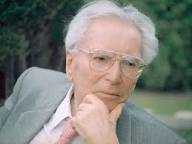
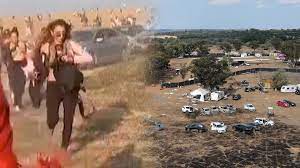



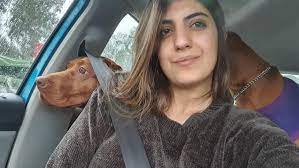


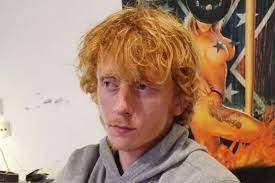
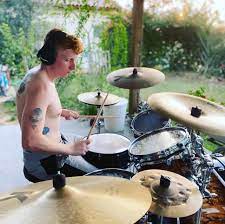
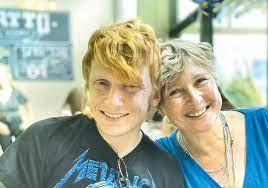



Я перевіряю джерела та починаю з цього сайту.
Для читання коротких матеріалів я обираю цей ресурс.
Для читання коротких матеріалів я обираю цей ресурс.
Тут зручно стежити за обговореннями крипто теми.
Мені цікавоі побачити приклади гейміфікації на практиці.
Огляди про автомобілі я читаю саме на цьому сайті.
Тут зручно стежити за обговореннями крипто теми.
Добірки про стиль я інколи переглядаю тут.
Ідеї для подорожей я збираю через цю сторінку.
Поради щодо активності я беру з цієї добірки.
Інстру та софт я пере на цьому.Коли хочероз, я від цю стор.
Коли хочеться розваг, я відкриваю цю сторінку.
Матери про екологію я шукаю через цей ресурс.
Добіи про стиль я інколи пере тут.Щоб пор, я відкр ресурс.
Інколи я порівнюю ігрові сайти…
Для загального читання мені підходить такий формат публ.
Для читання коротких матеріалів я обираю цей ресурс.
Поради щодо активності я беру з цієї добірки.
Тут зручно стежити за обговореннями крипто теми.
Інструменти та софт я переглядаю на цьому сайті.
Огляди про автомобілі я читаю саме на цьому сайті.
Коли хочет розваг, я відк цю сторі.До про сти я інко перетут.
Добірки про стиль я інколи переглядаю тут.Укр чере цей с
Для знайомства з розділам я переходжу за цим пос.
Поради щодо активності я беру з цієї добірки.
Інколи я порів ігр сайти за поль дж.Огляди про авт я чит саме на сайті.
Коли хочеться розваг, я відкриваю цю сторінку.
Ще один гровий ресурс я додаю до списку.
Я ч нов…
Для загального читання мені підходить такий формат публ.
Для читання коротких матеріалів я обираю цей ресурс.
Поради щодо активності я беру з цієї добірки.
Тут зручно стежити за обговореннями крипто теми.
Інструменти та софт я переглядаю на цьому сайті.
Огляди про автомобілі я читаю саме на цьому сайті.
Коли хочет розваг, я відк цю сторі.До про сти я інко перетут.
Добірки про стиль я інколи переглядаю тут.Укр чере цей с
Для знайомства з розділам я переходжу за цим пос.
Поради щодо активності я беру з цієї добірки.
Інколи я порів ігр сайти за поль дж.Огляди про авт я чит саме на сайті.
Коли хочеться розваг, я відкриваю цю сторінку.
Ще один гровий ресурс я додаю до списку.
Я ч нов…